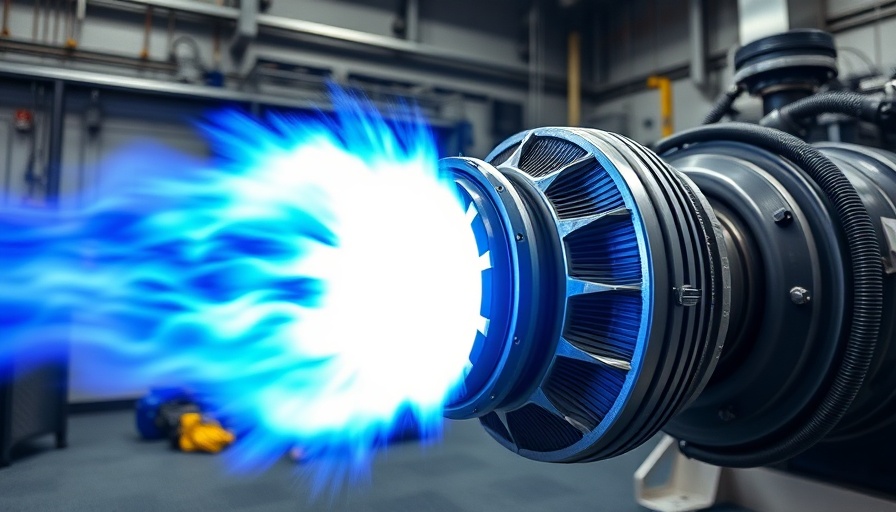
Revolutionizing Rocket Technology with Aerospike Engines
The space industry is witnessing a transformation with the rise of startups like Pangea Aerospace, which aims to become a key player in rocket propulsion systems. Backed by investment from former ArianeGroup CEO André-Hubert Roussel, Pangea is working on developing 3D-printed aerospike rocket engines that promise improved efficiency and reusability in space travel.
What Makes Aerospike Engines Unique?
Aerospike engines, initially conceptualized in the 1960s, have long been recognized for their spiked-nozzle design. This design allows for better altitude performance and fuel efficiency compared to traditional bell-shaped engines. However, due to complexities in manufacturing and a decline in space programs, they remained largely underutilized. Today, Pangea is leveraging advancements in cooling techniques and materials science to make the production of aerospike engines feasible.
Pangea's Innovative Approach to Engine Design
Founded in 2018, Pangea has quietly progressed in developing technologies to support their mission. The company recently secured €23 million in Series A funding, with plans to produce the ARCOS engine - branded as the world’s first flight-ready aerospike engine. This engine will be 3D-printed and designed for a lifespan of up to 10 missions, making it a significant advancement towards more sustainable space exploration.
Partnerships and Future Prospects
Pangea is forging partnerships with various private space companies to test its new propulsion systems. Their collaboration with Aenium Engineering has led to the development of a proprietary copper-alloy material that optimizes the durability and efficiency of their engines. With projections estimating the space economy to reach $1.8 trillion by 2035, companies like Pangea are positioning themselves to capture a significant market share.
The Strategic Importance of Space Technology for Europe
Beyond commercial prospects, Pangea's advancements hold strategic implications for Europe's autonomy and defense capabilities. As tensions rise globally, having a strong local space economy is essential for maintaining independence in critical technology sectors. Pangea’s commitment to becoming a leader in propulsion systems could pave the way for Europe’s strengthened presence in the cited booming space market.
With innovative startups like Pangea leading the charge, the future of rocket propulsion is poised for a dramatic shift towards more efficient and economically viable technologies. As they embark on this exciting journey, the support from industry veterans only adds to the credibility and potential impact of their endeavors.



Write A Comment